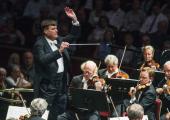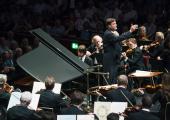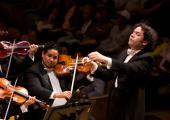Prom 74: Verdi Requiem, OAE, Alsop
Verdi’s choral spectacular showcases impressive youth choir, but period instruments add little
Tradition – a choral spectacular for the penultimate night of the Proms – but with a twist – a youth choir and period instruments. Marin Alsop this evening led a spectacular Verdi Requiem, not least for the sheer scale of the chorus, the BBC Proms Youth Choir some 200 strong. The Orchestra of the Age of Enlightenment provided chacterful accompaniment, though sometimes struggled to compete, and the four soloists all delivered, particularly Tamara Wilson, here confirming her reputation as one of today’s leading Verdi sopranos.



